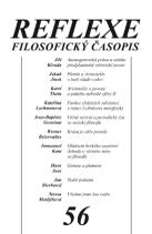Aristotle on Ruling: between Heidegger and Gagarin
Book I of Aristotle’s Politics seems to deliver two slightly different pictures of the slave: on one hand the slave is depicted as an exploited tool of production; on the other hand, he is conceived as a less-gifted member of the household. Most scholars, who tend to approach Aristotle from the modern liberal perspective of the universal equality of all human beings, take the former picture as the authentic Aristotelian one and criticize it as an ideological account that does not square with Aristotle’s general view of the human being. Those, on the contrary, who are communitarian-oriented, emphasize the latter picture and try to defend close connection of the slave to his master as an expression of the solidarity with the former. The paper attempts to show that Aristotle’s conception is not ambivalent since the two pictures in question are complementary. Thus, Aristotle provides us with a complex account, which can neither be criticized for inconsistency and ideological bias, nor does it need to be defended from the communitarian- -like standpoint. The paper proceeds by discussing four contexts of Aristotle’s slavery: types of rule, technical use of the slaves, psychology of the slaves, justification of slavery. The main stress is given to the technical context that brings Aristotle’s theory very close to the controversy between Heidegger and Lévinas about modern technology. Aristotle’s conception of the slave as a „tool of action“ is closer to the modern notion of technology (Lévinas) than to the traditional notion of the productive crafts and arts (Heidegger); at the same time, however, Aristotle’s particular notion of property supports the traditional responsibility of the user for his tools.
Backlinks: Reflexe 31
